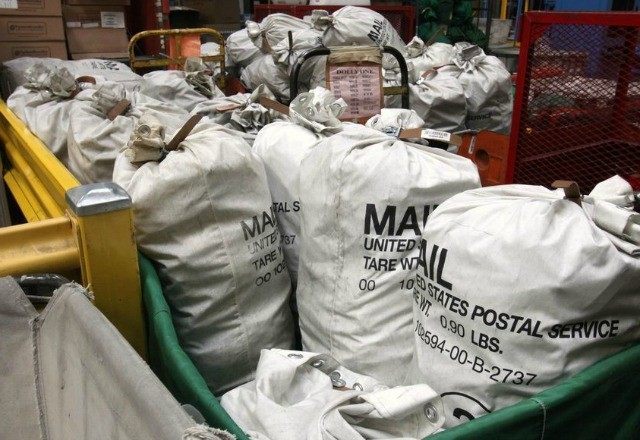The Dallas County Commissioners Court voted Tuesday to limit the number of mail-in ballots individuals may submit in future elections after two hotly contested Democrat city council seat races threw a May 2017 election into a tailspin over absentee ballot irregularities. However, these new caps actually do little to curb voter fraud, some experts say.
The Dallas County Commissioners Court restricted the number of pre-printed mail-in ballot applications the Dallas County Elections Department (DCED) will dole out to verified candidates at 200. They will limit all other people to five ballots apiece. Requestors will also be required to sign a registry to better account for the paperwork. Previously, anyone could obtain an unlimited number of forms. The new rules have no impact on individuals wishing to download and print applications from the Dallas County website.
County officials were quick to note the new mail-in ballot rules will save the DCED money in printing expenses.
Dallas County Judge Clay Jenkins asked how the new rules would clamp down on mail-in ballot fraud when people “can still print them out.” He also questioned what happens when an elected official or candidate sends someone down to the registrar’s office for their allotted copies because they can still print up untold quantities of mail-in ballot applications should they lose them. “So we’re not stopping anyone,” he commented.
Following the vote, the Public Interest Legal Foundation (PILF) blasted Dallas County’s new mail-in ballot voter fraud restrictions, calling them a “joke.” In a tweet, the election integrity nonprofit underscored the underlying problem, noting “Dallas isn’t serious about a problem disproportionately impacting minority voters.”
#Dallas County, #Texas‘ new mail ballot limits to stop #VoterFraud are a joke.
-Individuals can request 5.
-Campaigns can get 200.
-Anyone with internet & printer has no limit.Dallas isn’t serious about a problem disproportionately impacting minority voters.#Complicit
— PublicInterestLegal (@PILFoundation) January 17, 2018
Breitbart Texas spoke to Direct Action Texas Director Aaron Harris. This Dallas-Fort Worth political advocacy watchdog group uncovered alleged mail-in ballot voter irregularities in Tarrant County during the 2016 national election. This triggered the Texas Attorney General’s office to initiate the largest voter fraud probe in the state’s history.
Harris called Tuesday’s vote “smoke and mirrors” because this same self-printing policy was in place last year when the voter fraud happened in Dallas.
“Their policy of limiting campaigns to 200 applications is not new and was in place last year when the fraud occurred in the city council races and run-offs,” said Harris. “The policy is useless; a campaign can make their own application form. They do not need to use the county’s form. Any sophisticated campaign knows this.”
Harris recommended that “instead of trying to put up useless policies in an attempt to convince citizens the commissioners care about election integrity,” they should “actually clean house beginning with the elections administrator who has been overseeing these fraudulent elections for years.”
He remarked that the actions taken Tuesday show “no evidence that the election administrator or the commissioners court are prepared to take meaningful steps to curb this illegal behavior which for which Dallas has become known.”
Last year, Dallas County election officials sequestered 700 suspicious absentee ballots, pushing pause on the results of a May election to sort out irregularities. Allegations of forged mail in-ballots targeting the elderly erupted in two district races with hotly contested city council seats. Absentee ballots are largely used by voters age 65 and older, the disabled, and people out of the country during elections.
Then, audio emerged suggesting a voter harvesting scheme reached all the way into the county’s elections office. Dallas County District Attorney Faith Johnson launched a criminal investigation and asked the Texas Attorney General’s office for support. Breitbart Texas reported that, in early June, authorities issued an arrest warrant for suspect Miguel Hernandez, accused of forging the signature of at least one elderly voter on a mail-in ballot. However, Hernandez went missing. A month later, a grand jury indicted him in absentia on one charge of illegal voting, a second degree felony. Shortly thereafter, police apprehended him.
Following the Dallas election debacle, Governor Greg Abbott called upon state lawmakers to craft legislation that would crack down on errant individuals committing mail-in ballot fraud and protect people who vote by mail. Breitbart Texas reported that Governor Greg Abbott signed Senate Bill 5 after a special legislative session last summer.
Under SB 5, penalties graduated for repeat offenders from misdemeanor to felony status. The latter carries a sentence of two to 10 years in prison and up to a $10,000 fine. The law prohibits the use of an electronic signature and requires signature verification for absentee ballots. Rejected mail-in ballots suspected of fraud must be reported promptly to the state Attorney General.
Breitbart Texas reported PILF called SB 5’s stronger penalties good but argued that Texas needed better voter identification requirements built into the mail balloting system. PILF cited the Kansas model which requires citizens to provide driver’s license numbers or other similar forms of ID as verification.
Dallas County elections officials say they plan to provide pamphlet information to individuals requesting absentee ballots that outline the state’s new penalties for fraudulent use and/or misuse of mail-in ballots. Reportedly, the county administrator also intends to buy software to help staff detect forgeries.
Follow Merrill Hope, a member of the original Breitbart Texas team, on Twitter.

COMMENTS
Please let us know if you're having issues with commenting.